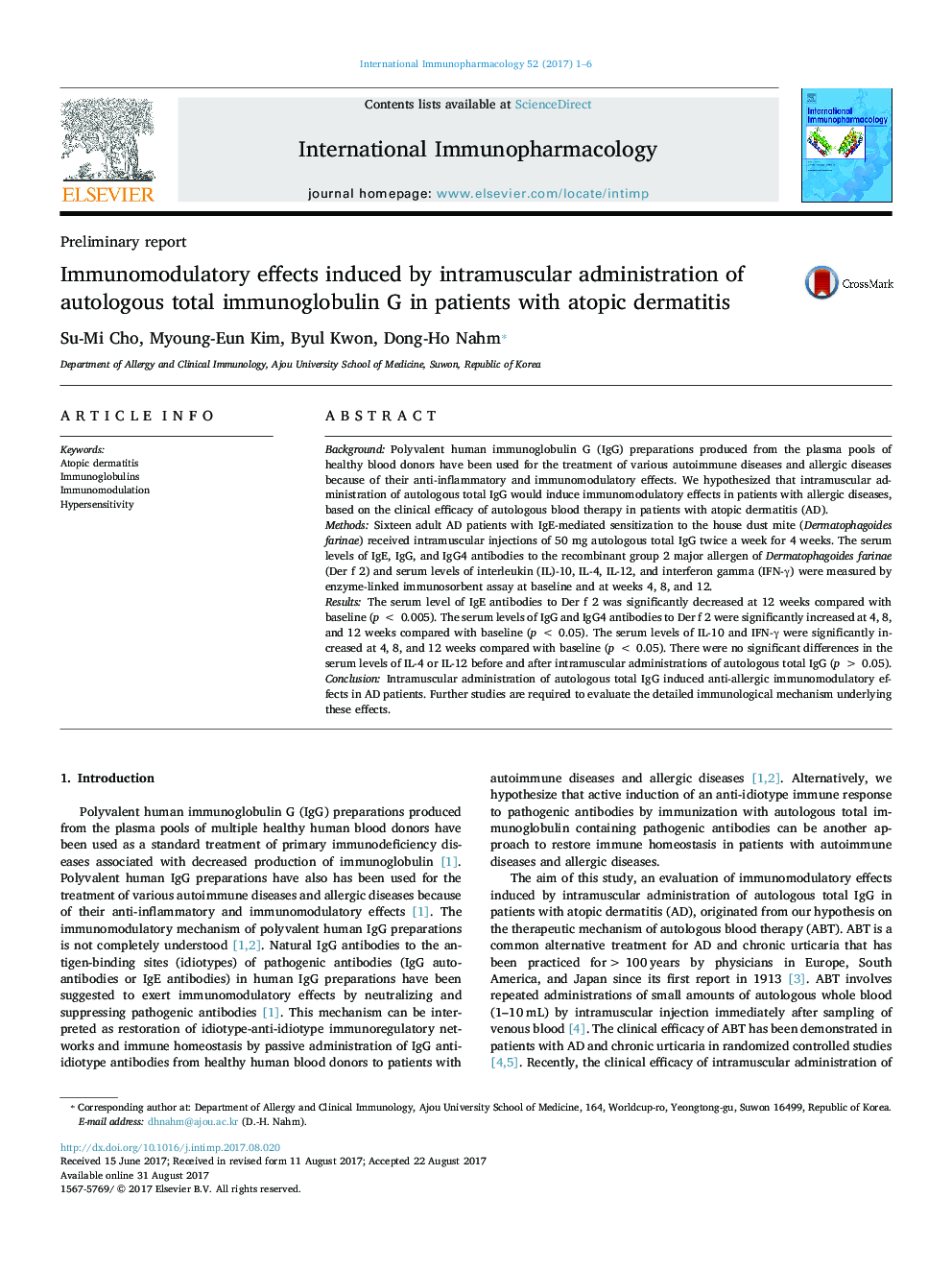| Article ID | Journal | Published Year | Pages | File Type |
|---|---|---|---|---|
| 5555235 | International Immunopharmacology | 2017 | 6 Pages |
â¢Intramuscular administration of autologous total IgG (IM-ATIG) induced anti-allergic immunomodulatory effects.â¢IM-ATIG decreased the serum levels of allergen-specific IgE antibodies.â¢IM-ATIG increased the serum levels of allergen-specific IgG antibodies.â¢IM-ATIG increased the serum levels of IL-10 and IFN-γ.
BackgroundPolyvalent human immunoglobulin G (IgG) preparations produced from the plasma pools of healthy blood donors have been used for the treatment of various autoimmune diseases and allergic diseases because of their anti-inflammatory and immunomodulatory effects. We hypothesized that intramuscular administration of autologous total IgG would induce immunomodulatory effects in patients with allergic diseases, based on the clinical efficacy of autologous blood therapy in patients with atopic dermatitis (AD).MethodsSixteen adult AD patients with IgE-mediated sensitization to the house dust mite (Dermatophagoides farinae) received intramuscular injections of 50 mg autologous total IgG twice a week for 4 weeks. The serum levels of IgE, IgG, and IgG4 antibodies to the recombinant group 2 major allergen of Dermatophagoides farinae (Der f 2) and serum levels of interleukin (IL)-10, IL-4, IL-12, and interferon gamma (IFN-γ) were measured by enzyme-linked immunosorbent assay at baseline and at weeks 4, 8, and 12.ResultsThe serum level of IgE antibodies to Der f 2 was significantly decreased at 12 weeks compared with baseline (p < 0.005). The serum levels of IgG and IgG4 antibodies to Der f 2 were significantly increased at 4, 8, and 12 weeks compared with baseline (p < 0.05). The serum levels of IL-10 and IFN-γ were significantly increased at 4, 8, and 12 weeks compared with baseline (p < 0.05). There were no significant differences in the serum levels of IL-4 or IL-12 before and after intramuscular administrations of autologous total IgG (p > 0.05).ConclusionIntramuscular administration of autologous total IgG induced anti-allergic immunomodulatory effects in AD patients. Further studies are required to evaluate the detailed immunological mechanism underlying these effects.
